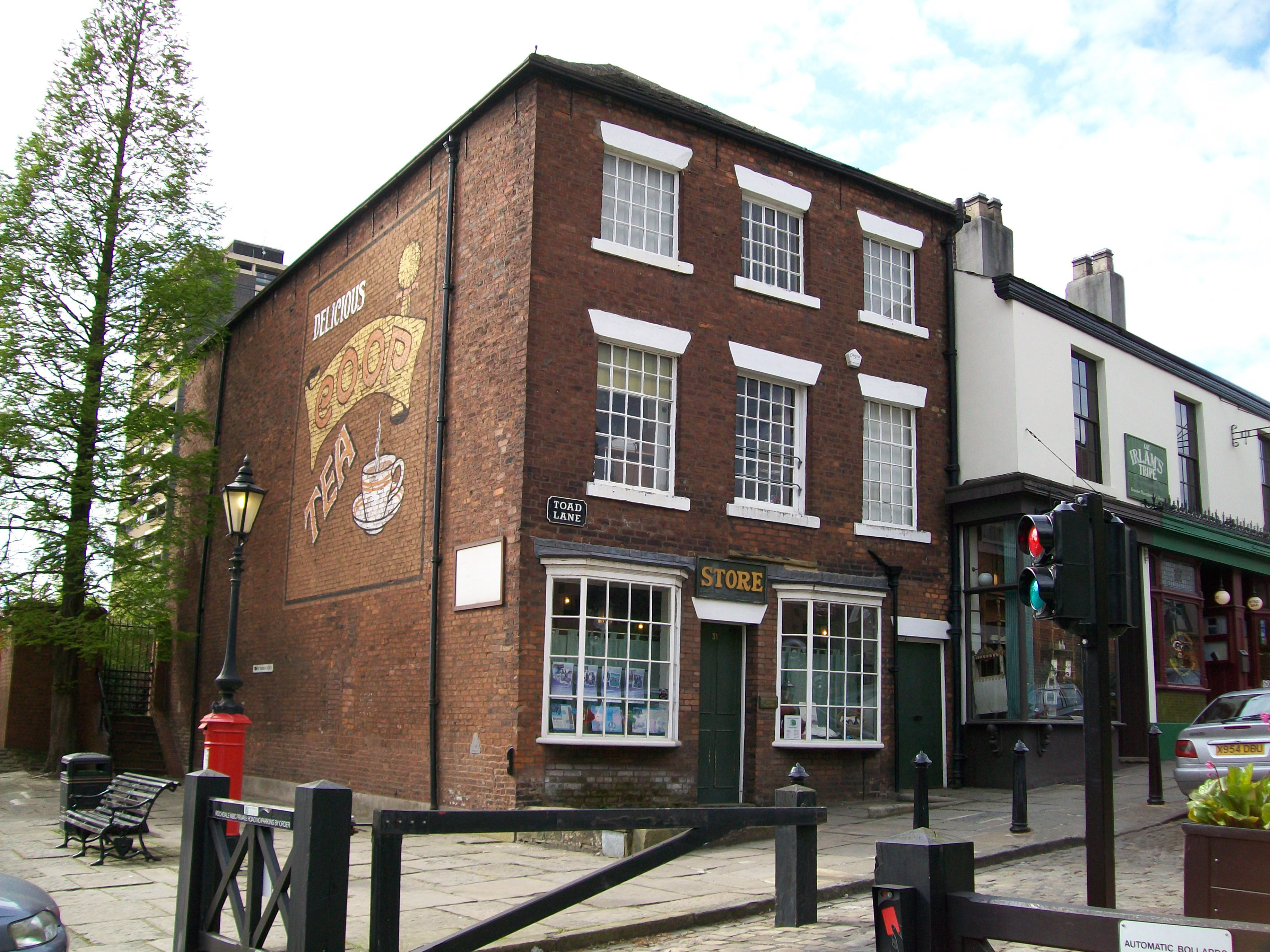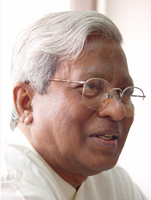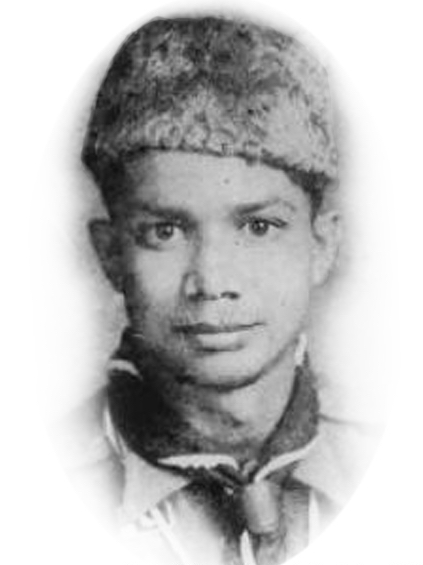|
Comilla Model
The Comilla Model was a rural development programme launched in 1959 by the Pakistan Academy for Rural Development (renamed in 1971 the Bangladesh Academy for Rural Development). The academy, which is located on the outskirts of Comilla District, Comilla town, was founded by Akhter Hameed Khan, the cooperative pioneer who was responsible for developing and launching the programme. While the results of the model ultimately frustrated Khan's ambitions, it has important implications for rural community development, particularly cooperative microfinance and microcredit. Origins and purpose The Comilla Model was Khan's reply to the failure of ''Village Agricultural and Industrial Development'' (V-AID) programme, launched in 1953 in East Pakistan, East and West Pakistan with technical assistance from the US government. The V-AID was a governmental level attempt to promote citizens participation in the sphere of rural development. Khan argued that for Comilla to develop rapidly, the ... [...More Info...] [...Related Items...] OR: [Wikipedia] [Google] [Baidu] |
Bangladesh Academy For Rural Development
Bangladesh Academy for Rural Development (BARD) ( bn, বাংলাদেশ পল্লী উন্নয়ন একাডেমী (বার্ড)) Bangladesh Academy for Rural Development (BARD) started its journey on 27 May 1959 as a Training, Research and Action Research institute in rural development. The founder director of this academy dedicated to the leadership of Dr. Akhtar Hameed Khan, some researchers carried out continuous experiments with rural people and developed some model programs for rural development in this country. In the early sixties, the problems that were prevalent in rural areas were identified. The priorities of these programs are: 1. Creating a sustainable organization in the village, 2. Creating personal and collective capital, 3. Infrastructure development, 4. Expansion of advanced agricultural technology, 5. Expansion of social development activities including health, education, family planning, women's education, 6. Creating an organi ... [...More Info...] [...Related Items...] OR: [Wikipedia] [Google] [Baidu] |
Pakistan
Pakistan ( ur, ), officially the Islamic Republic of Pakistan ( ur, , label=none), is a country in South Asia. It is the world's List of countries and dependencies by population, fifth-most populous country, with a population of almost 243 million people, and has the world's Islam by country#Countries, second-largest Muslim population just behind Indonesia. Pakistan is the List of countries and dependencies by area, 33rd-largest country in the world by area and 2nd largest in South Asia, spanning . It has a coastline along the Arabian Sea and Gulf of Oman in the south, and is bordered by India to India–Pakistan border, the east, Afghanistan to Durand Line, the west, Iran to Iran–Pakistan border, the southwest, and China to China–Pakistan border, the northeast. It is separated narrowly from Tajikistan by Afghanistan's Wakhan Corridor in the north, and also shares a maritime border with Oman. Islamabad is the nation's capital, while Karachi is its largest city and fina ... [...More Info...] [...Related Items...] OR: [Wikipedia] [Google] [Baidu] |
Shoaib Sultan Khan
Shoaib Sultan Khan NI (born 11 July 1933) is one of the pioneers of rural development programmes in Pakistan. As a CSP Officer, he worked with the Government of Pakistan for 25 years, later on he served Geneva based Aga Khan Foundation for 12 years, then UNICEF and UNDP for 14 years. Since his retirement, he has been involved with the Rural Support Programmes (RSPs) of Pakistan full-time, on voluntary basis. Today, the Rural Support Programmes have helped form 297,000 community organisations in 110 districts including two Federally Administered Tribal Areas of Pakistan. He has received the United Nations Environment Programme Global 500 Award in 1989, the Sitara-i-Imtiaz in 1990, the Ramon Magsaysay Award in 1992, thWWF Duke of Edinburgh Conservation Awardin 1994, "Man of the Year" Rotary International (Pakistan) Gold Medal in 2005, Sitara-e-Eisaar and Hilal-i-Imtiaz by the President of Pakistan in 2007. In 2009 he was elected as Senior Ashoka Fellow. He has written numerous ... [...More Info...] [...Related Items...] OR: [Wikipedia] [Google] [Baidu] |
Akhtar Hameed Khan
Akhter Hameed Khan ( ur, , pronounced ; 15 July 1914 – 9 October 1999) was a Pakistani development practitioner and social scientist. He promoted participatory rural development in Pakistan and other developing countries, and widely advocated community participation in development. His particular contribution was the establishment of a comprehensive project for rural development, the Comilla Model (1959). It earned him the Ramon Magsaysay Award from the Philippines and an honorary Doctorate of law from Michigan State University. In the 1980s he started a bottom-up community development initiative of Orangi Pilot Project, based in the outskirts of Karachi, which became a model of participatory development initiatives. He also directed many programmes, from microcredit to self-finance and from housing provision to family planning, for rural communities and urban slums. It earned him international recognition and high honours in Pakistan. Khan was fluent in at least seven la ... [...More Info...] [...Related Items...] OR: [Wikipedia] [Google] [Baidu] |
Elite Capture
Elite capture is a form of corruption whereby public resources are biased for the benefit of a few individuals of superior social status in detriment to the welfare of the larger population. Elites are groups of individuals who, because of self-ratifying factors such as social class, asset ownership, religious affiliations, political power, historic discrimination among social groups, political party affiliation, or economic position, have decision-making power in processes of public concern. This specific form of corruption occurs when elites use public funds, originally intended to be invested in services that benefit the larger population, to fund projects that would only benefit them. This form of corruption is differentiated from outright criminal corruption such as embezzlement, misappropriation, or other diversion of funds by a public official. Elite capture is related to information asymmetry, inefficient regulation or inefficient allocation of resources. This causes a ... [...More Info...] [...Related Items...] OR: [Wikipedia] [Google] [Baidu] |
Autonomy And Independence (cooperatives)
The Rochdale Principles are a set of ideals for the operation of cooperatives. They were first set out in 1844 by the Rochdale Society of Equitable Pioneers in Rochdale, England and have formed the basis for the principles on which co-operatives around the world continue to operate. The implications of the Rochdale Principles are a focus of study in co-operative economics. The original Rochdale Principles were officially adopted by the International Co-operative Alliance (ICA) in 1937 as the Rochdale Principles of Co-operation. Updated versions of the principles were adopted by the ICA in 1966 as the Co-operative Principles and in 1995 as part of the Statement on the Co-operative Identity.ICA Co-operative Principles , 1937, 1966, and 1995 revisions. Current ICA version of co-operative principles ...
|
Statement On The Co-operative Identity
The International Co-operative Alliance (ICA) is a non-governmental co-operative federation or, more precisely, a co-operative union representing co-operatives and the co-operative movement worldwide. It was founded in 1895 to unite, represent and serve co-operatives worldwide. The Alliance maintains the internationally recognised definition of a co-operative in the "Statement on the Co-operative Identity". The ICA represents 318 co-operative federations and organisations in 112 countries. The Alliance provides a global voice and forum for knowledge, expertise and co-ordinated action for and about co-operatives. The members of the Alliance are international and national co-operative organisations from all sectors of the economy, including agriculture, banking, consumer, fisheries, health, housing, insurance, and workers. The Alliance has members from 100 countries, representing close to one billion individuals worldwide. Around one hundred million people work for co-operatives g ... [...More Info...] [...Related Items...] OR: [Wikipedia] [Google] [Baidu] |
Fazle Hasan Abed
Sir Fazle Hasan Abed ( bn, ফজলে হাসান আবেদ; 27 April 1936 – 20 December 2019) was the founder of BRAC, one of the world's largest non-governmental organizations. Early life Abed was born on 27 April 1936 in the village of Baniachong, located in what is present-day Habiganj District, Sylhet, Bangladesh. He belonged to a Bengali Muslim family of Zamindars, known as the Hasan family, and was one of eight children of Siddiq Hasan and Syeda Sufia Khatun. Abed's maternal grandfather, Syed Moazzem Uddin Hossain, had served successively as ministers for agriculture and education for Bengal during the last years of British rule. His paternal great-uncle was Sir Syed Shamsul Huda, a member of the Imperial Legislative Council. After passing intermediate from Dhaka College in 1954, Abed left home at the age of 18 to attend University of Glasgow, where, in an effort to break away from tradition and do something radically different, he studied naval architect ... [...More Info...] [...Related Items...] OR: [Wikipedia] [Google] [Baidu] |
Muhammad Yunus
Muhammad Yunus (born 28 June 1940) is a Bangladeshi social entrepreneur, banker, economist and civil society leader who was awarded the Nobel Peace Prize for founding the Grameen Bank and pioneering the concepts of microcredit and microfinance. These loans are given to entrepreneurs too poor to qualify for traditional bank loans. Yunus and the Grameen Bank were jointly awarded the Nobel Peace Prize "for their efforts through microcredit to create economic and social development from below". The Norwegian Nobel Committee said that "lasting peace cannot be achieved unless large population groups find ways in which to break out of poverty" and that "across cultures and civilizations, Yunus and Grameen Bank have shown that even the poorest of the poor can work to bring about their own development". Yunus has received several other national and international honours. He received the United States Presidential Medal of Freedom in 2009 and the Congressional Gold Medal in 2010. In 2008 ... [...More Info...] [...Related Items...] OR: [Wikipedia] [Google] [Baidu] |
Grameen Bank
Grameen Bank ( bn, গ্রামীণ ব্যাংক) is a microfinance organisation and community development bank founded in Bangladesh. It makes small loans (known as microcredit or "grameencredit") to the impoverished without requiring collateral. Grameen Bank originated in 1976, in the work of Professor Muhammad Yunus at University of Chittagong, who launched a research project to study how to design a credit delivery system to provide banking services to the rural poor. In October 1983 the Grameen Bank was authorised by national legislation to operate as an independent bank. The bank grew significantly between 2003 and 2007. As of January 2011, the total borrowers of the bank number 8.4 million, and 97% of those are women. In 1998 the Bank's "Low-cost Housing Program" won a World Habitat Award. In 2006, the bank and its founder, Muhammad Yunus, were jointly awarded the Nobel Peace Prize. History Muhammad Yunus was inspired during the Bangladesh famine o ... [...More Info...] [...Related Items...] OR: [Wikipedia] [Google] [Baidu] |
BRAC (NGO)
BRAC is an international development organisation based in Bangladesh. In order to receive foreign donations, BRAC was subsequently registered under the NGO Affairs Bureau of the Government of Bangladesh. BRAC is the largest non-governmental development organisation in the world, in terms of number of employees as of September 2016. Established by Sir Fazle Hasan Abed in 1972 after the independence of Bangladesh, BRAC is present in all 64 districts of Bangladesh as well as 11 other countries in Asia, Africa, and the Americas. BRAC states that it employs over 90,000 people, roughly 70 percent of whom are women, and that it reaches more than 126 million people with its services. The organisation is partly self-funded through a number of social enterprises that include a dairy and food project, a chain of retail handicraft stores called Aarong, seed and Agro, and chicken. BRAC has operations in 12 countries of the world. History Known formerly as the Bangladesh Rehabilitat ... [...More Info...] [...Related Items...] OR: [Wikipedia] [Google] [Baidu] |
Decentralised
Decentralization or decentralisation is the process by which the activities of an organization, particularly those regarding planning and decision making, are distributed or delegated away from a central, authoritative location or group. Concepts of decentralization have been applied to group dynamics and management science in private businesses and organizations, political science, law and public administration, economics, money and technology. History The word "''centralisation''" came into use in France in 1794 as the post-Revolution French Directory leadership created a new government structure. The word "''décentralisation''" came into usage in the 1820s. "Centralization" entered written English in the first third of the 1800s; mentions of decentralization also first appear during those years. In the mid-1800s Tocqueville would write that the French Revolution began with "a push towards decentralization... ut became,in the end, an extension of centralization."Vivien A ... [...More Info...] [...Related Items...] OR: [Wikipedia] [Google] [Baidu] |





